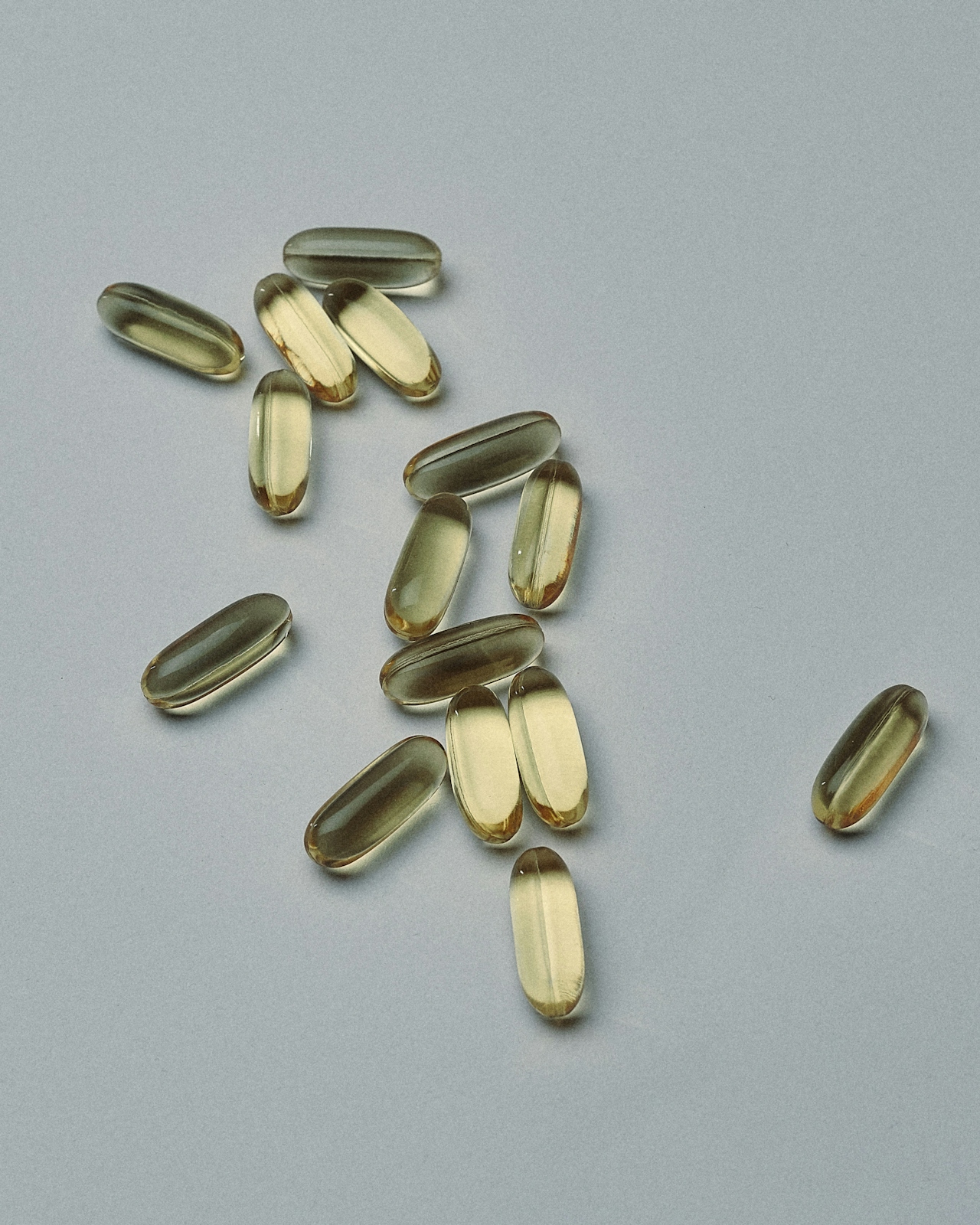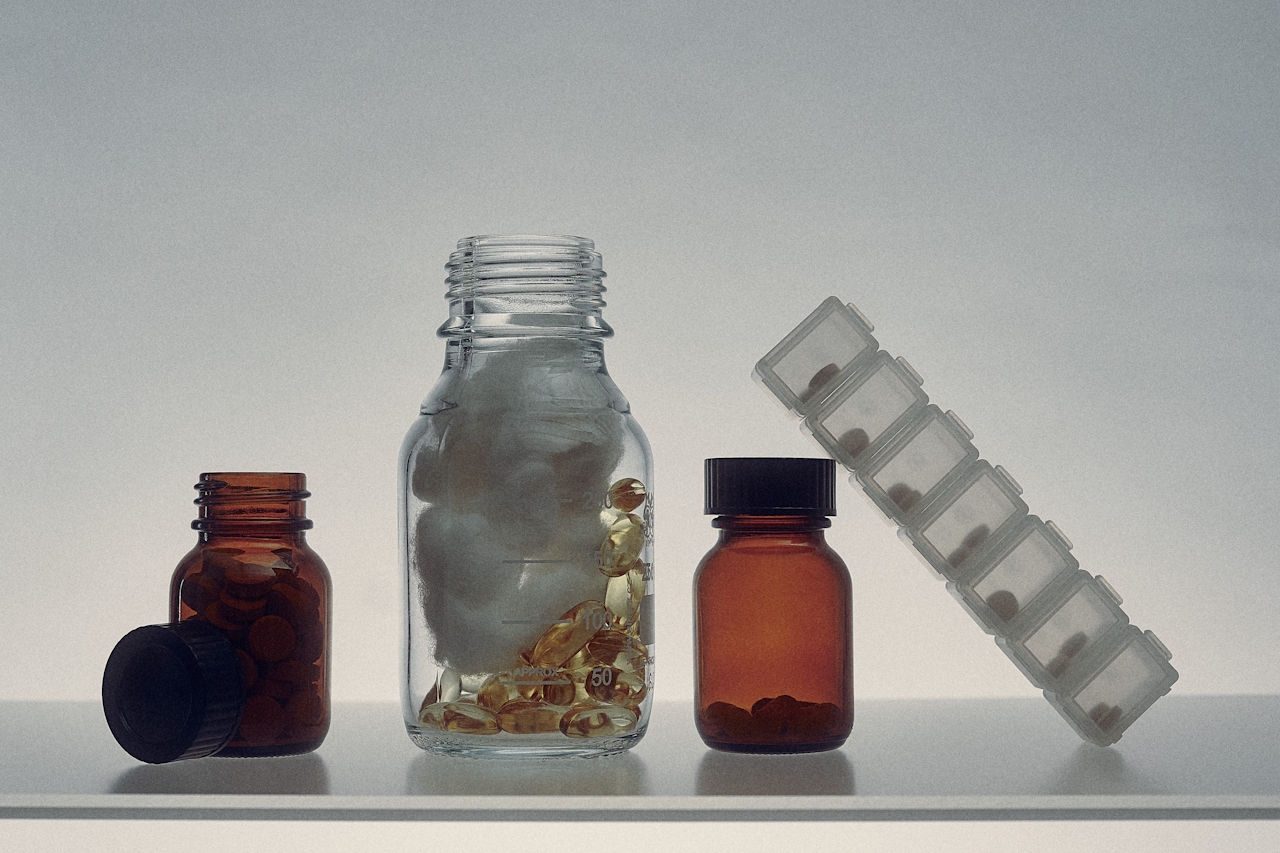
Understanding Female Hormones and Why They Matter for Your Health
19 Sep 2025
Hormones are chemical messengers produced in every woman’s body that impact nearly every aspect of women’s health. As most women are aware, hormone levels fluctuate across each menstrual cycle and beyond as they regulate various functions in the body, from fertility to mood, energy, skin, and metabolism.
When hormonal levels are balanced, the functions regulated by these hormones operate efficiently. When they’re not, symptoms can appear that are often ignored or taken as the standard baseline when this is not necessarily the case.
Common signs of imbalance include:
- Irregular or painful periods
- Unexplained fatigue or brain fog
- Excessive mood swings or anxiety
- Weight gain, especially around the abdomen
- Acne, irritated skin and sensitive skin
- Hair thinning or excessive hair growth
- Low libido, vaginal dryness and sometimes pain during intercourse

The best way to identify any imbalances promptly, is for women of all ages to undergo hormone profile tests. Armed with this information, women can better understand what is happening in their bodies and make informed decisions about their health. It’s important to know, however, which specific symptoms relate to hormonal health and what to look out for.
When Should You Get a Female Hormone Profile Test? Key Signs to Look For
There are certain times in life when hormone testing can be particularly helpful:
- Puberty: The onset of puberty brings about hormonal changes which will seem unusual to many girls. Menarche (the first period) typically occurs between 12 and 13 years old but may be irregular for the first few years. It’s worthwhile waiting until full maturity is reached in relation to puberty, typically from the ages of 15-17, before undergoing a hormone panel as this is when the results are most relevant and meaningful.
In the event of strongly abnormal signs, which may include early puberty (precocious puberty), delayed puberty or excessive discomfort and unusual symptoms including heavy bleeding, extremely irregular cycles or excessive pain, seeking medical advice and assessment from a specialist is highly recommended.
- Fertility planning: If you are planning on conceiving a child, it’s highly recommended checking ovulation patterns and reproductive health to ensure the best changes of successful conception. Relevant blood tests include AMH, FSH, Oestradiol, LH, Progesterone, Prolactin, Thyroid Function Tests and Androgen tests. Read on to discover more information about each of these tests and their function in relation to fertility.
All these tests are qualitative, meaning you will receive a ‘number’ as a result, which will either be within the normal range or outside of the normal range – indicating a potential problem. It’s highly advised to attend a medical clinic or centre in order to have your sample taken by a professional and assessed at accredited laboratories. This is because the technique used by the testing laboratory, sample timing and collection method can all significantly impact on the accuracy of tests. Home testing kits may be more convenient and cheaper, but if you cannot rely upon the results 100% of the time, it’s worth the investment to ensuring accuracy, reliability and access to professionals in the event you discover potential issues.
- Postpartum: Many women experience a hormonal shift after childbirth, the symptoms of which often include fatigue, mood changes, or irregular cycles. There are a range of causes for this, including a rapid drop in oestrogen and progesterone which may contribute towards mood changes, potential symptoms of depression and feelings of low energy. The hormone prolactin rises to help support successful breastfeeding which can also impact upon ovulation and the menstrual cycle.
Of course, life with a newborn is often difficult and it’s hard to distinguish whether fatigue, low energy and mood changes are hormonal in nature or due to the physical exertion of labour, the disruption in sleep due to caring for a newborn and maybe even the depletion of essential nutrients. Postpartum thyroid dysfunction can occur within the first year following childbirth, which can also contribute towards fatigue, irregular cycles or mood swings. If you’re experiencing any of these symptoms, it’s worthwhile undergoing some hormonal tests to help establish their cause.

- Perimenopause and menopause: The menopause is a natural progression as hormone production, more specifically oestrogen and progesterone start to change, fluctuate before the eventually decline. This change usually occurs between the ages of 40 to 60 however as with all hormonal changes, each woman will experience onset differently. The menopausal hormone changes can present with a range of symptoms, including; hot flashes and night sweats, sleep disruption, irregular or heavy cycles during perimenopause, anxiety and mood changes, noticeable differences to the skin, joints, or energy levels and brain fog/difficulty with memory.
Whilst many of these symptoms are common, they can impact upon your quality of life and may also indicate other significant changes in long-term health. Lower levels of the hormone oestrogen have links to an increased risk of cardiovascular issues, the potential to reduce bone density as well as other shifts in metabolic health. As such, the menopause and perimenopause is an important transitional period to pay attention to and to undertake a full body MOT to gain detailed insight into some key health indicators:
What to look for in a Menopause & Midlife Women’s Health Screen:
- Hormone level testing, including Oestrogen, Progesterone, FSH, LH, Testosterone and DHEA-S to establish which stage of reproduction you are currently within and to help guide a registered medical practitioner towards relevant treatment options such as HRT – Hormone Replacement Therapy.
- Bone health to include DEXA imaging scans and Calcium, Phosphate and Vitamin D blood tests since bone density typically declines after menopause. Undergoing these tests helps you establish whether you could be at higher risk of bone fractures and disorders moving forwards.
- Cardiovascular and metabolic health tests including; Full lipid profile, Glucose, HbA1c, Blood pressure, CRP and Kidney and liver function tests. These are all important to establish general health and wellbeing to ensure you receive a detailed full picture of your current health status.
- Mental health and cognitive wellbeing screening to include mood, sleep, and sometimes memory or focus checks. These are typically conducted via a simple questionnaire which your screening doctor will conduct during the assessment.
- General health checks including Full blood counts, Iron studies to include Vitamin B12. These tests are useful to highlight the reasons behind fatigue or other symptoms which are often mistaken for ‘just menopause.’
By undergoing a full assessment with a registered professional, women can better understand how their bodies are changing, developing and adapting during this transitional period. A health screening may help you feel supported by experts and make informed choices about lifestyle changes, medical treatments, or preventive care, armed with the clinical knowledge and expertise that can only come from medical professionals.

Other reasons to consider testing may include:
- Suspected PCOS
- Difficulty conceiving
- Persistent fatigue or low energy
- Unexplained weight gain
- Mood changes not explained by other factors
Even without symptoms, testing can provide a useful baseline for long-term health monitoring.
Breaking Down the Essential Female Hormones
FSH (Follicle-Stimulating Hormone)
FSH is produced by the pituitary gland and stimulates the follicles to grow and produce oestradiol. As they grow and mature, a follicle will nurture the egg within in preparation for ovulation. FSH levels are usually measured on days 2–5 of the cycle.
High levels are indicative of a reduced ovarian reserve, perimenopause/menopause, or can suggest that you may be experiencing ovarian dysfunction. Low levels of FSH can help diagnose hypothalamic or pituitary issues, chronic or acute stress, or poor nutrition. FSH is a key hormone used to assess fertility potential and ovarian health.
LH (Luteinising Hormone)
LH is also produced by the pituitary gland in the brain. LH works synergistically with FSH to regulate the menstrual cycle. A surge in LH during the middle of the menstrual cycle triggers ovulation, the release of an egg. Typically measured on days 2–5 alongside FSH, or mid-cycle to detect an LH surge. High levels may indicate polycystic ovary syndrome (PCOS), premature ovarian failure, or menopause. Low levels can be linked to pituitary/hypothalamic dysfunction, stress, or low body weight. LH is crucial for understanding ovulation patterns and diagnosing causes of infertility or irregular cycles.

Anti-Müllerian Hormone (AMH)
AMH is produced by ovarian follicles and measures the ovarian reserve – the amount of egg producing follicles. Unlike other hormones, it remains stable across the cycle and so can be measured at any point during the menstrual cycle.
High AMH is most common in PCOS (Polycystic Ovary Syndrome) other reasons may include taking fertility treatment medications and, in some cases, ovarian tumours can produce excess AMH. Low AMH levels indicate a reduced egg supply or menopause. AMH is widely used in fertility planning and to predict ovarian response in assisted reproduction. It is often known as the Ovarian Reserve blood test and levels naturally decline as women age.
Prolactin
Prolactin is another hormone that is secreted by the pituitary gland. It supports breast development and milk production and can be be measured at any time during the menstrual cycle, however stress may cause results to be elevated.
High levels of Prolactin can disrupt ovulation and cause irregular cycles or in some cases even infertility. The causes of high levels of Prolactin include pituitary adenomas, a dysfunctional thyroid, or certain medications. Low levels are rare and would warrant more investigation to discover the underlying cause. Prolactin testing is widely used in infertility without obvious cause or when women experience disruption with their usual menstrual cycle.
Oestradiol-17-Beta (E2)
E2 is the most active form of oestrogen, produced mainly by the ovaries. Often measured on days 2–5 alongside FSH and LH, or mid-cycle to assess follicular development.
High levels of E2 can be suggestive of ovarian cysts, or tumours. Other reasons for high E2 levels include taking hormonal therapy including HRT. Low levels typically suggest a reduced ovarian reserve, menopause, or dysfunction of the hypothalamus. E2 hormone is useful in measuring ovarian function, menstrual health as well as long-term bone and cardiovascular risks.
SHBG (Sex Hormone-Binding Globulin)
SHBG is a protein predominantly created in the liver which binds to sex hormones, in particular testosterone and oestrogen. SHBG regulates how much of these hormones are freely active and available for the body to use.
High SHBG means more hormones are bound, leaving fewer which are free to circulate. This in turn can result in lower free testosterone or oestrogen levels. A low SHBG level results in less binding, leaving a higher level of free hormones available. Typical causes of low SHBG include; PCOS, obesity, and insulin resistance. Measuring SHBG is helpful as part of panel which includes testosterone to calculate the Free Androgen Index (FAI) and return a better picture of androgen function.
Free Androgen Index (FAI)
FAI is a calculation of testosterone relative to SHBG, and as described above, is useful for showing biologically active androgen levels.
High FAI is commonly seen in women with PCOS and other adrenal issues. Low levels of FAI may relate to imparied androgen production, a reduced sex drive, or fatigue. FAI is a more reliable marker than total testosterone alone for investigating symptoms like acne or hirsutism (excess hair growth).
Glucose, Insulin, HbA1c
These tests assess blood sugar and insulin control. HbA1c will demonstrate the average glucose levels over 2–3 months.
High levels of any of these tests may help to diagnose insulin resistance, pre-diabetes, or diabetes. Results are key in evaluating energy balance, metabolic health, and fertility concerns including PCOS but should always be interpreted in the context of your wider health.

Free T4 and TSH
These are hormones related to the Thyroid gland and are commonly included in Thyroid function Tests as well as some hormone panels. TSH – Thyroid Stimulating Hormone does exactly what it says - stimulates the thyroid gland; Free T4 is a thyroid hormone which helps regulate metabolism and energy.
High TSH with low T4 may indicate hypothyroidism. Low TSH with high T4 is suggestive of hyperthyroidism. Thyroid testing is essential for investigating causes behind fatigue, weight change, irregular menstrual cycles, and other fertility issues.
Lipid Profile
A lipid profile measures total cholesterol, LDL, HDL, and triglycerides and helps to assess cardiovascular risk. Colloquially, LDL is known as ‘Bad Cholesterol’ and HDL is known as ‘Good Cholesterol’
High LDL and triglycerides may be cause for concern as they can indicate an elevated risk of heart disease, while a higher HDL is less worry as it acts protectively. Lipid testing is especially important in women who are post-menopause when the proective effect of oestrogen declines.

Androgens & Stress Hormones
Androgens (Testosterone, DHEA-S, 17-OH progesterone) all impact ovulation, skin, and hair quality. Stress hormones (like Cortisol) reflect adrenal activity.
High androgen levels are typical in PCOS and are very helpful in diagnosing the condition; abnormal cortisol or DHEA-S can suggest an adrenal imbalance but may require further investigation. Testing of the androgens and stress hormones can help explain symptoms such as acne, hair growth, irregular cycles, or fatigue.
Female Hormone Profiles: Which One is Right for You?
Hormone profiles vary in depth and scope. They can be grouped into three general categories:
|
Profile |
Best Suited For |
Key Markers that should be included |
|
Essential |
Baseline screening, menstrual health, fertility basics |
FSH, LH, Prolactin, Oestradiol-17-Beta |
|
Advanced |
Women with metabolic or thyroid concerns |
Essential markers + Free Androgen Index, Glucose, Insulin, HbA1c, Free T4/TSH, Lipid Profile |
|
Elite |
Comprehensive assessment, fertility planning, PCOS, longevity |
Advanced markers + Anti-Müllerian Hormone, additional androgens, stress hormones, cholesterol |
Choosing the right profile depends on symptoms, life stage, and the level of detail desired.

Essential Hormone Profile
This entry-level panel covers the fundamentals of menstrual and fertility health:
- FSH & LH – indicate ovarian function and ovulation patterns
- Prolactin – high levels may affect fertility and cycle regularity
- Oestradiol-17-Beta – key for bone, brain, and cardiovascular health
Who benefits most?
- Young women
- First-time testers
- Those seeking a baseline for overall health
The Advanced Profile goes beyond reproductive hormones to include metabolic and thyroid markers.
- Free Androgen Index – assesses testosterone activity, important in PCOS
- Glucose, Insulin, HbA1c – reveal blood sugar control and diabetes risk
- Free T4/TSH – measure thyroid function, essential for energy and metabolism
- Lipid Profile – assesses cholesterol and cardiovascular risk
This profile is valuable for women with symptoms such as unexplained fatigue, weight changes, or suspected thyroid or metabolic concerns.
The Elite Profile offers the most comprehensive overview of hormone health, combining reproductive, metabolic, thyroid, and adrenal markers.

It often includes:
- Anti-Müllerian Hormone (AMH) – indicates ovarian reserve and fertility potential
- Androgens & Stress Hormones – provide insight into PCOS and adrenal balance
- Cholesterol & Insulin Resistance Markers – link hormone health with long-term risks such as diabetes and cardiovascular disease
This profile is useful for those exploring fertility, investigating PCOS, or seeking a full picture of hormonal health as part of long-term preventive care.
What to Expect During a Female Hormone Test
Hormone tests are performed with a simple blood draw from a vein in your arm. The process typically includes:
Preparation: As described above, some tests may require fasting or specific timing within the menstrual cycle or at a certain time during the day, particularly if Cortisol is being tested.
Sample collection: A medical professional will usually take a venous blood sample in a clinic setting. Home tests are available, however accuracy, turnaround times and methodology varies so for those seeking accurate, reliable tests, a clinic visit is preferred.
Laboratory analysis: Your sample will be processed by accredited labs with results issued within a short period timeframe, usually within one or two days.
Interpretation: It is always recommend that results are interpreted by a healthcare professional in the context of symptoms and medical history, but if you’re just looking to monitor yourself, these results are typically easy to understand.
Frequently Asked Questions About Female Hormone Profile Tests
Do I need to fast?
Some tests, such as glucose or lipid profiles, will require fasting. Others, such as FSH and LH will vary depending what day of your cycle you undertake the test. Ensure you check with your laboratory or clinic before booking an appointment.
Which day of my cycle should I test?
Reproductive hormones are typically measured between days 2–5 of the cycle.
How often should I repeat tests?
This depends on age, symptoms, and whether you are experiencing any symptoms of hormonal dysregulation. Annual checks can be very useful in checking progression and to ensure continual monitoring.
Will results be explained clearly?
Results should always be interpreted by a healthcare professional in the context of your wider health and history.
Why Hormone Testing Matters for Women’s Health
Hormone testing provides a window into many aspects of your general health, including fertility, metabolism, cardiovascular status, mood/energy, and ageing. By undertaking a detailed hormone panel from a reputable provider women gain a deeper understanding of their bodies across all life stages. Look for clinics that also offer doctors consultations and Gynaecologist consultations so that if needed, there is a professional with whom you can discuss your results.

References:
“Pubertal development and regulation” — Abreu et al., 2016
FAQ: Evaluating Infertility - The American College of Obstetricians and Gynecologists (ACOG)
“Potential pitfalls of reproductive direct-to-consumer testing” - Stanczyk, 2022
“Testing and interpreting measures of ovarian reserve” - ASRM Practice Committee Opinion (2020)
Postpartum fatigue and related factors - Krug et al., 2018.
Menopause: identification and management - NICE guideline Reference number:NG23
Women’s health: a life course approach - Royal Society & Academy of Medical Sciences. (2021).
Perimenopause: From research to practice. Journal of Women’s Health 25(4):332–339 - Santoro, N. (2016).
Created by Stephen Lingam, Managing Director, Medical Express
Reviewed by Dr Claire Lingam MB ChB
19-09-2025
Recent Posts

Understanding Privat...
19 Sep 2025
Understanding Female...
19 Sep 2025
How to Prepare for Y...
19 Sep 2025
Save your Valuable L...
19 Sep 2025